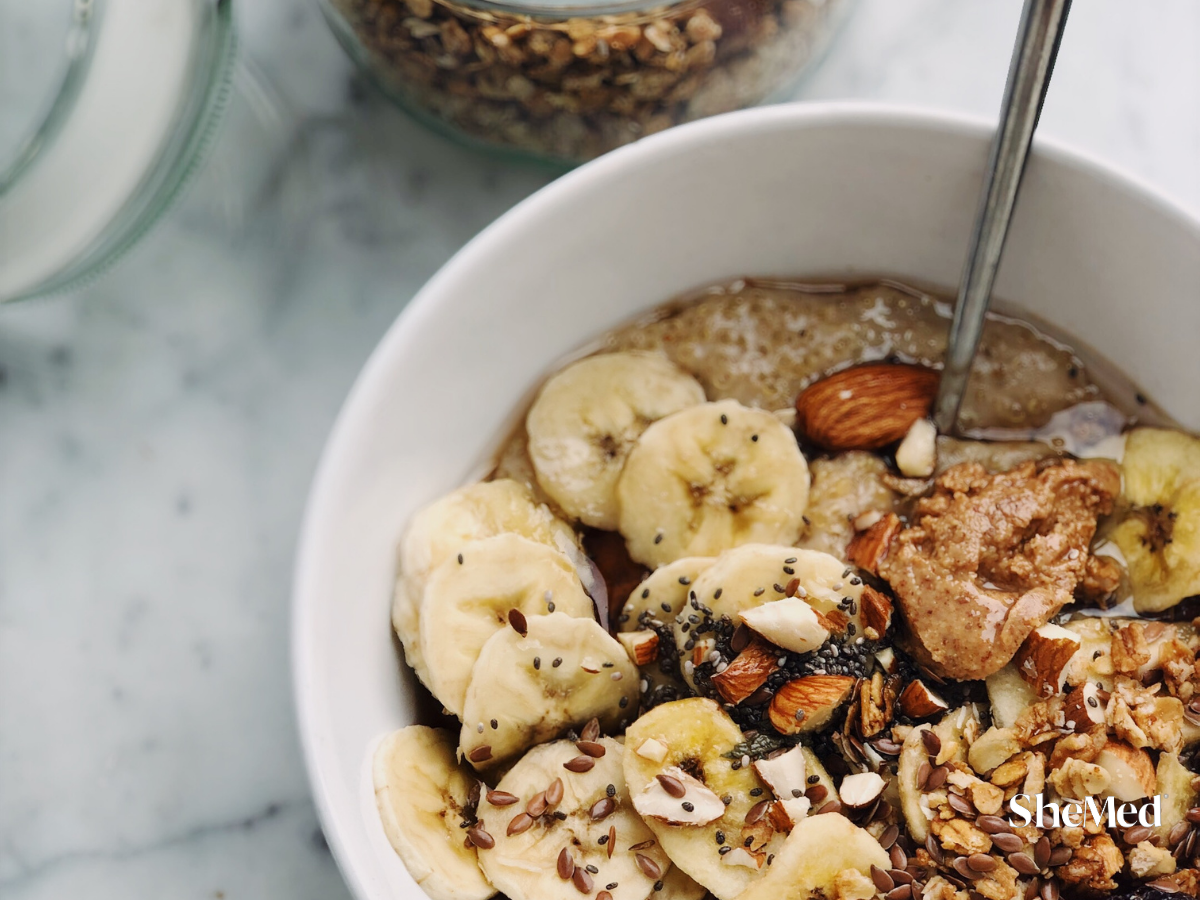
Emotional eating is a widespread issue that affects many women, impacting both mental and physical health. It involves using food as a means to cope with emotional distress rather than to satisfy physical hunger. This behaviour can lead to a cycle of overeating, weight gain, and feelings of guilt or shame. According to the NHS, emotional eating can contribute to health problems such as obesity, depression, and anxiety.
A study published in the Appetite journal found that emotional eating is prevalent among women in the UK, often linked to stress, low mood, and fatigue (O'Connor et al., 2008). The pressures of modern life, including work demands, social expectations, and personal responsibilities, can trigger emotional eating episodes. Addressing these triggers is crucial for improving overall well-being and developing a healthier relationship with food.
This guide aims to help women understand emotional eating, identify personal triggers, and provide practical strategies to overcome them.
Understanding Emotional Eating
What Is Emotional Eating?
Emotional eating refers to the consumption of food especially comfort foods in response to emotional needs rather than physical hunger. It often involves eating large amounts of food in a short period, and it's a way to suppress or soothe negative emotions.
Emotional Hunger vs Physical Hunger
Distinguishing between emotional and physical hunger is essential:
- Emotional Hunger:
- Sudden Onset: Strikes abruptly and feels urgent.
- Specific Cravings: Desires particular foods, often high in sugar or fat.
- Mindless Eating: Eating without paying attention to fullness cues.
- Unresolved Feelings: Leads to guilt, shame, or continued emotional distress.
- Physical Hunger:
- Gradual Onset: Develops over time.
- Open to Options: Willing to eat various foods.
- Aware Eating: Conscious of satiety and stops when full.
- Physical Satisfaction: Eating relieves hunger without negative emotions.
Understanding these differences can help you make mindful choices about when and what to eat.
The Comfort Food Phenomenon
Comfort foods are typically high in calories, carbohydrates, sugar, or fat. They provide a temporary sense of relief or pleasure by triggering the release of feel-good neurotransmitters like dopamine and serotonin. However, this effect is short-lived, and reliance on comfort foods can lead to health issues. As indicated by the British Nutrition Foundation that while certain foods can influence mood, overindulgence can create a cycle of dependency and negative health outcomes.
Common Emotional Triggers Among British Women
Several factors contribute to emotional eating in British women:
- Stress: High-pressure jobs, financial concerns, and family responsibilities can cause chronic stress.
- Anxiety and Depression: Mental health issues may lead to overeating as a coping mechanism.
- Boredom: Lack of stimulation or routine can result in eating to fill time.
- Societal Pressures: Media portrayal of ideal body types can impact self-esteem and eating habits.
- Seasonal Changes: The UK's long winters and limited daylight can affect mood and increase cravings, related to Seasonal Affective Disorder (SAD).
By recognising these triggers, you can begin to address the underlying causes of emotional eating.
Identifying Your Emotional Eating Triggers
The Importance of Self-Awareness
Self-awareness is the cornerstone of change. By understanding your patterns and triggers, you can develop strategies to manage them effectively.
Self-Reflection Exercise
- Maintain a Food and Mood Diary: Document your food intake alongside your emotional state. Note the time, what you ate, your hunger level, and feelings before and after eating.
- Analyse Patterns: After a week or two, review your diary to identify common themes or triggers.
- Reflect on Situations: Consider the circumstances surrounding emotional eating episodes.
Downloadable Food and Mood Diary
We have prepared a Food and Mood Diary Template provided by Mind, the mental health charity. This resource can help you track your eating habits and emotions effectively.
Hypothetical Examples
Case Study: Laura's Afternoon Cravings
Laura, a 40-year-old nurse from Bristol, noticed she craved sweets every afternoon around 3 pm. Through her diary, she realised this coincided with feelings of fatigue and stress at work. By recognising this, she started taking short breaks and practising deep breathing exercises to manage stress.
Case Study: Hannah's Late-Night Snacking
Hannah, a 30-year-old mother from Edinburgh, found herself snacking after putting her children to bed. She identified feelings of loneliness and used that time to call a friend or read a book instead.
These examples highlight how self-reflection can lead to meaningful changes.
Strategies to Overcome Emotional Eating Triggers
Now that you've identified your triggers, let's explore strategies to address them.
Mindful Eating Techniques
The Principles of Mindful Eating
Mindful eating encourages you to be fully present during meals, promoting a greater awareness of your body's hunger and fullness signals.
- Awareness: Paying attention to the taste, texture, and smell of food.
- Non-Judgment: Accepting your feelings and thoughts without criticism.
- Listening to Your Body: Recognising hunger and satiety cues.
Practical Tips for Mindful Eating
- Create a Calm Environment: Eat without distractions like TV or smartphones.
- Use All Your Senses: Observe the colours, smells, and flavours.
- Chew Thoroughly: Aids digestion and allows you to savour your food.
- Pause During Meals: Set down utensils between bites.
Emotional eating triggers can be effectively managed through strategies that focus on self-awareness, stress reduction, and healthier coping mechanisms. Techniques such as mindfulness meditation and journaling help individuals identify and address the emotions driving their eating behaviours, while engaging in physical activity and relaxation practices like yoga or deep breathing can reduce stress and curb impulsive food cravings. Building a supportive environment, such as seeking therapy or joining support groups, further strengthens resilience against emotional triggers. (Springer Link)
Healthy Coping Mechanisms for Emotions
Managing Stress and Anxiety
- Exercise: Physical activity reduces stress hormones and releases endorphins.
- Options: Join a local gym, take up running, or try home workouts.
- Recommendation: The NHS recommends at least 150 minutes of moderate-intensity activity a week.
- Relaxation Techniques:
Dealing with Boredom and Sadness
- Engage in New Hobbies: Learn a musical instrument, start knitting, or take up photography.
- Social Activities: Attend community events or join clubs aligned with your interests.
- Volunteer Work: Organisations like Volunteering Matters provide opportunities to give back.
Activities That Resonate with Women
- Walking in Nature: Explore national parks or local green spaces. The National Trust offers information on trails and events.
- Creative Classes: Participate in art, dance, or cooking classes available in your community.
- Support Groups: Join groups facilitated by organisations like BEAT for peer support.
Building a Balanced Diet
The Role of Nutrition in Emotional Well-being
A balanced diet supports not only physical health but also mental well-being. Nutrients like omega-3 fatty acids, B vitamins, and amino acids play roles in mood regulation.
Creating a Balanced Meal Plan
- Follow the Eatwell Guide: Ensure your diet includes:
- Fruits and Vegetables: Aim for at least five portions a day.
- Starchy Carbohydrates: Choose wholegrain options for sustained energy.
- Proteins: Include lean meats, fish, eggs, beans, and pulses.
- Dairy or Alternatives: Opt for lower-fat options.
- Healthy Fats: Use unsaturated oils in moderation.
- Meal Prep: Prepare meals in advance to avoid impulsive eating.
Guidelines from Trusted Sources
Refer to the NHS Eatwell Guide and resources from the British Dietetic Association for detailed information.
Managing Triggers in Your Environment
Reducing Exposure to Tempting Foods
Modifying your environment can reduce the likelihood of emotional eating.
Practical Environmental Strategies
- Organise Your Kitchen:
- Keep Healthy Foods Accessible: Place fruits and nuts within easy reach.
- Store Treats Out of Sight: If you choose to keep them, store them in opaque containers.
- Grocery Shopping Tips:
- Shop Online: Avoid impulse buys by ordering groceries online.
- Read Labels: Be aware of nutritional content.
- Dining Practices:
- Use Smaller Plates: Helps control portion sizes.
- Eat at the Table: Avoid eating in front of the TV.
Sample Pantry Makeover

Implementing these changes can make healthier choices more convenient.
Additional Support and Resources
Professional Help and Helplines
- GP Consultation: Your GP can provide referrals to dietitians or mental health professionals.
- NHS Mental Health Services: Access support through NHS Improving Access to Psychological Therapies (IAPT).
- Helplines:
- Mind Infoline: 0300 123 3393
- BEAT Helpline: 0808 801 0677
Charities and Organisations
- Mind: Provides information and support on mental health issues. Visit Mind.
- BEAT: Offers resources and support for those affected by eating disorders. Visit BEAT.
- Samaritans: Provides emotional support 24/7. Call 116 123 or visit Samaritans.
Educational Materials and Workshops
- NHS Self-Help Resources: Access guides and tools at NHS Self Help.
- Workshops: Local community centres and adult education colleges may offer courses on stress management, mindfulness, and healthy cooking.
- Online Resources:
- Centre for Mindfulness Research and Practice: Bangor University.
- Living Life to the Full: Offers free online courses to improve mental health (https://llttf.com/).
Conclusion
Emotional eating is a complex issue, but with understanding, self-awareness, and practical strategies, it is possible to overcome it. By recognising your triggers, practising mindful eating, adopting healthy coping mechanisms, and seeking support, you can develop a healthier relationship with food and enhance your overall well-being.
Remember that change takes time, and it's important to be patient and compassionate with yourself. Every step you take towards addressing emotional eating is a positive move towards better health and happiness.
Take the first step today by trying one of the strategies outlined in this guide. Reach out to professionals if you need support, and know that you are not alone on this journey.
References
- Mind. (n.d.). Food and Mood. Retrieved from https://www.mind.org.uk/information-support/tips-for-everyday-living/food-and-mood/about-food-and-mood/
- NHS. (n.d.). Mental Health Services. Retrieved from https://www.nhs.uk/mental-health/
- NHS. (n.d.). The Eatwell Guide. Retrieved from https://www.nhs.uk/live-well/eat-well/the-eatwell-guide/
- O'Connor, D. B., Jones, F., Conner, M., McMillan, B., & Ferguson, E. (2008). Effects of daily hassles and eating style on eating behavior. Appetite, 50(1), 119-124.
- Royal College of Psychiatrists. (n.d.). Seasonal Affective Disorder (SAD). Retrieved from https://www.rcpsych.ac.uk/mental-health/problems-disorders/seasonal-affective-disorder-(sad)
- Dallman, M. F., Pecoraro, N., & la Fleur, S. E. (2003). Chronic stress and comfort foods: Self-medication and abdominal obesity. Brain, Behavior, and Immunity, 17(4), 275–280. https://doi.org/10.1016/S0889-1591(03)00049-3
Take charge of how you look and feel.
Backed by science. Guided by experts.
SheMed’s medical weight loss programme combines expert care and science-backed treatment to help you feel and look your best — for life.
SheMed’s medical weight loss programme combines expert care and science-backed treatment to help you feel and look your best — for life.
The content on the SheMed blog is provided for general informational and educational purposes only. While SheMed provides professional weight loss services and strives to ensure the information shared is accurate and up to date, we make no representations or guarantees as to its accuracy, completeness, or timeliness. This content should not be taken as personal medical advice or a substitute for consultation with a qualified healthcare provider. Always speak with your doctor or licensed medical professional about your individual health or medical needs before starting any new treatment or programme. Never disregard or delay seeking professional medical advice because of something you have read on this site. SheMed is not responsible for any actions you may take based on the information provided in this blog.
Subscribe to our Newsletter
Thank you! Your submission has been received!
Oops! Something went wrong while submitting the form.


